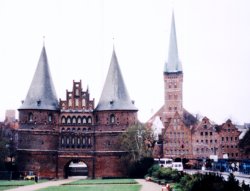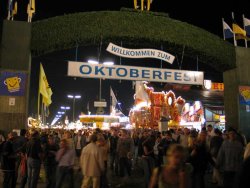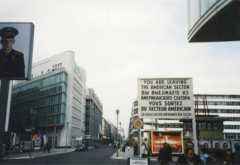I’ve been to Hamburg twice, but didn’t ever discover the fascinating Old Elbe Tunnel, which runs under the River Elbe, despite the fact that I was staying at the Auf dem Stintfang International hostel, which is all of two minutes walk from it. I’ve just found this video, showing one commuter’s trip through it.
The tunnel allows for pedestrian, bicycle and motor traffic, but what is particularly interesting about it is that the entrance consists of four huge elevators, rather than a passage to the surface, and cars are physically lowered down to the tunnel and then up again at the far end. Naturally, this doesn’t make for very high traffic throughput, and the tunnel is mostly used as a tourist attraction these days.
The northern entrance is close to the Landungsbrücken U-bahn and S-bahn stations; to get there, catch either the S1, S2 or S3 S-bahn lines, or U3 U-bahn line, from Hamburg Hauptbahnhof.




Recent Comments